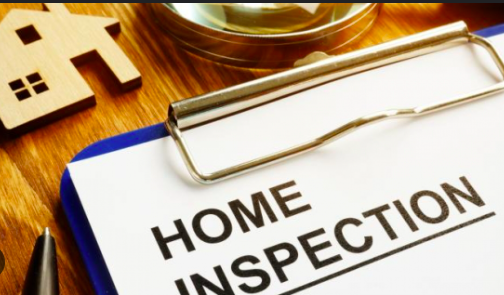Demystifying the Home Inspection Process in 6 steps: A Buyer’s Ultimate Guide to Understanding the Impact of Home Inspections
Congratulations on finding your dream home! As you move closer to sealing the deal, it’s essential to understand the critical step of the home inspection process. A thorough inspection can uncover potential issues and give you peace of mind about your investment. In this guide, we’ll walk you through everything you need to know about navigating the home inspection process as a buyer, ensuring that you’re well-prepared for this crucial step in your home buying journey.
-
- The Importance of a Home Inspection: Before finalizing the purchase of a home, it’s crucial to conduct a comprehensive inspection to assess its condition and identify any underlying issues. A professional home inspector will examine various aspects of the property, including the structure, roof, plumbing, electrical systems, HVAC, and more. By uncovering potential problems early on, you can make informed decisions and negotiate repairs or concessions with the seller.
- Finding a Qualified Home Inspector: When choosing a home inspector, it’s essential to do your research and select a qualified professional with a proven track record of thoroughness and reliability. Ask for recommendations from your realtor or trusted friends and family members, and verify the inspector’s credentials and certifications. A reputable inspector will provide you with a detailed report outlining their findings and recommendations, helping you make informed decisions about the property.
- Preparing for the Inspection: Prior to the scheduled inspection, it’s essential to prepare the home for the inspector’s visit. Ensure that all areas of the property are accessible, including the attic, basement, crawl spaces, and utility areas. Remove any clutter or obstacles that may impede the inspection process and make a list of any questions or concerns you’d like the inspector to address during the walkthrough.
- Attending the Inspection: While it’s not mandatory for buyers to be present during the inspection, attending the walkthrough can be highly beneficial. It allows you to observe the inspector’s findings firsthand, ask questions, and gain a better understanding of the property’s condition. Take notes and photographs during the inspection, and don’t hesitate to request clarification on any issues or terminology you may not understand.
- Reviewing the Inspection Report: Following the inspection, the home inspector will provide you with a detailed report outlining their findings and recommendations. Take the time to review the report carefully, paying close attention to any major issues or safety concerns that may need immediate attention. Discuss the findings with your realtor, and determine the best course of action moving forward, whether it’s requesting repairs from the seller or negotiating a price adjustment.
- Navigating Repairs and Negotiations: If the inspection reveals significant issues with the property, you may have the opportunity to request repairs or concessions from the seller. Work with your realtor to assess the extent of the repairs needed and negotiate a fair resolution that protects your interests. Keep in mind that some issues may be non-negotiable deal-breakers, while others may require compromise and flexibility on both sides.
The home inspection process is a crucial step in the home buying journey, providing invaluable insights into the condition of the property and helping you make informed decisions. By understanding the importance of a home inspection, finding a qualified inspector, preparing for the inspection, attending the walkthrough, reviewing the inspection report, and navigating repairs and negotiations effectively, you can proceed with confidence and peace of mind knowing that you’re making a sound investment in your future home. If you have any questions or need assistance with the home inspection process, don’t hesitate to reach out to me—I’m here to help you every step of the way.
Justin Brickman

